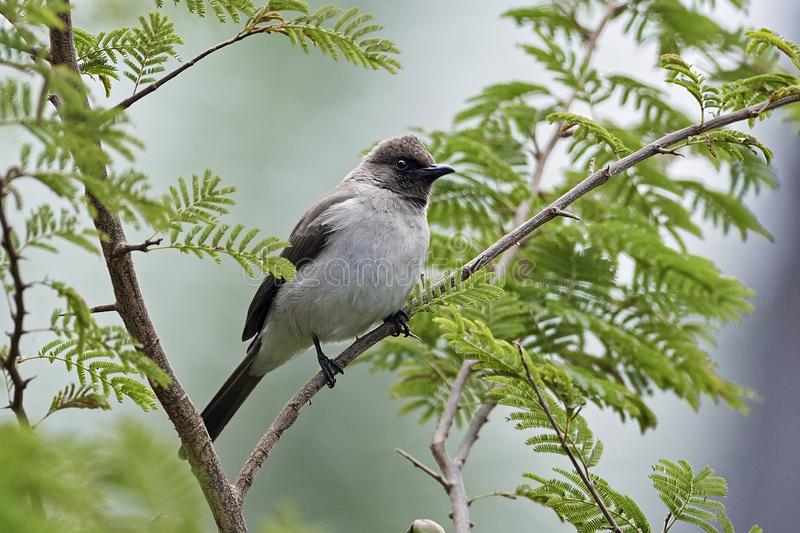ANIMAL: Common Bulbul Pycnonotus barbatus Type of Animal: Songbird Habitat: Woodland, coastal bush, riverine bush, forest edge, montane scrub, mixed farming habitats, exotic thickets, gardens, parks, orchards, oases, bush habitats w/ sufficient abundance of fruiting trees/shrubs, bush areas near water, arable land, plantations, desert, forest, savanna, shrubland, marshes, swamps, bogs, peatland, areas near/around permanent rivers/streams/creeks, areas near/around waterfalls, areas w/ fruiting trees, wetlands, areas near/around human habitation Location(s): Africa & far S Spain Appearance: Fairly short thin bird w/ dark brown head/upper body, black bill/legs/feet, eye dark brown w/ dark eye ring, pallid belly, long tail w/ whiter undertail in N part of range & yellow undertail in S part of range, slightly downcurving upper mandible Food/Diet: Fruit, nectar, seeds, insects, flowers, small lizards, shoots, buds, spiders Status in Wild: Stable Lifestyle: Flocks of 2-30 birds Additional Info: Called: Male: Cock Female: Hen Young: Chick Group: Flock Weight: Male: 1.2-1.74 oz Female: 1.02-1.48 oz Gestation: 2 weeks Life Span: 11 years Height: Male: 7.8 in Female: 5.9 in Body Length: Male: 7.8 in Female: 5.9 in Tail Length: 2.8 in, same for both sexes These are very active & noisy birds. Nests fairly rigid, thick-walled, & cup-shaped. These birds usually lay 2-3 eggs per clutch. Nests often parasitized by Jacobin/Pied Cuckoos, which eat bulbul eggs before laying own eggs in bulbul nests. These birds make harsh chattering calls. These birds are fast fliers. These already common birds increasing in wild due to human activity. These birds highly adaptable thriving in most habitats. These birds are resident throughout range. These birds can be crop pests. Fun Fact(s): National bird of Liberia. These birds sometimes kept as pets. Also called common garden bulbul, garden bulbul, black-eyed bulbul, brown bulbul, brown-capped geelgat, white-vented bulbul, yellow-vented bulbul, & pepper bird.
